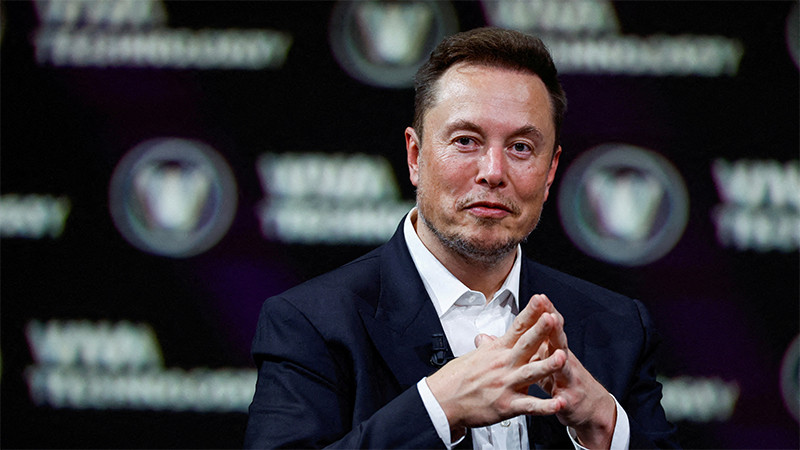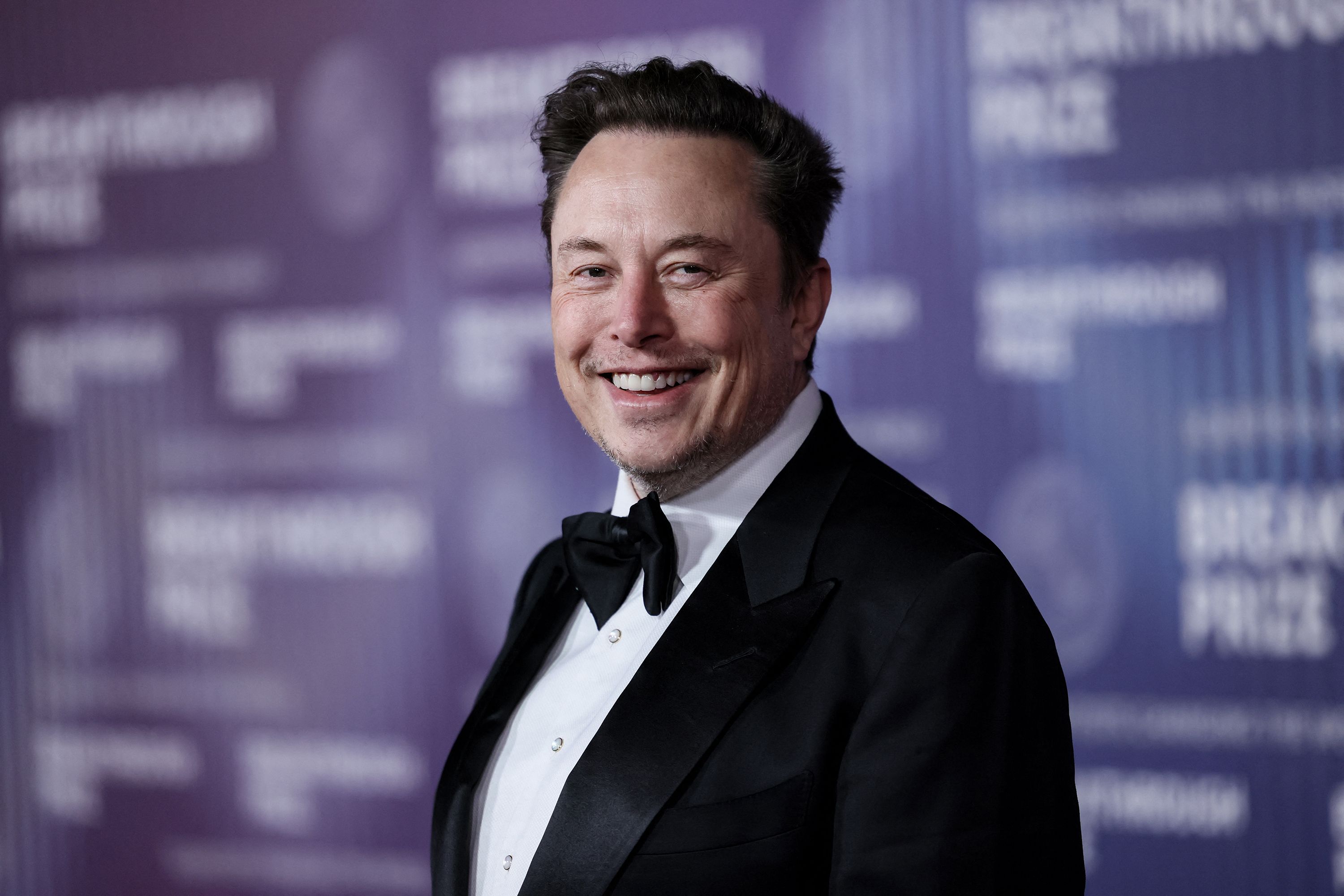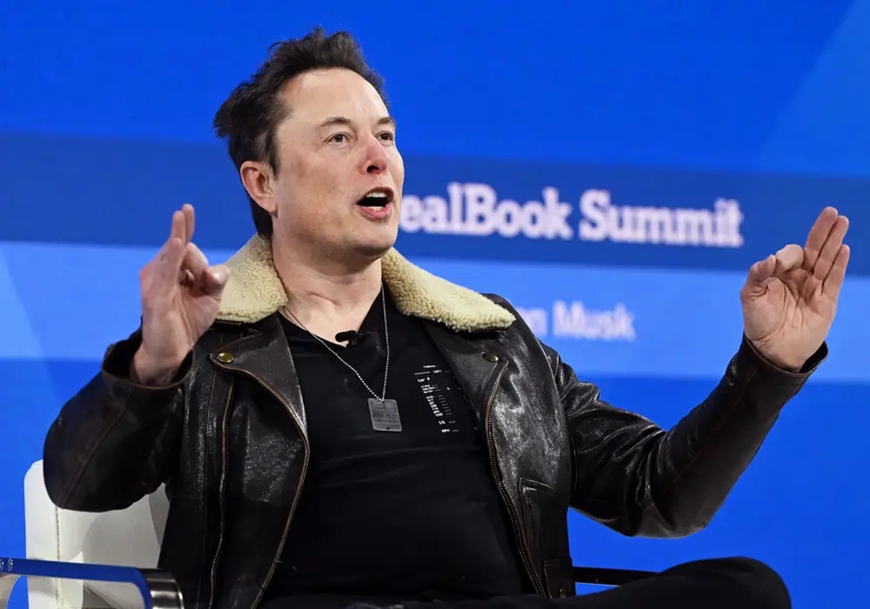Global Shock: Elon Musk Unexpectedly Nominated for the Nobel Peace Prize for a Reason NO ONE SAW COMING …

In a world accustomed to Elon Musk making headlines, it is rare to find a story that stops readers in their tracks. Yet that moment arrived this week, when the Norwegian Nobel Committee confirmed what many had dismissed as rumor: Elon Musk, the billionaire entrepreneur and perennial disruptor, has been officially nominated for the 2025 Nobel Peace Prize.
The announcement has ricocheted through diplomatic circles, financial markets, and social media platforms with breathtaking speed. For decades, the Nobel Peace Prize has been associated with leaders like Nelson Mandela, Malala Yousafzai, or international coalitions that fought famine, disease, or war. Musk’s name now stands beside theirs — but the reason, shrouded in deliberate ambiguity, remains cloaked in intrigue.
The Committee, usually precise in its explanations, issued only a sparse statement, crediting Musk with “contributions of extraordinary impact that extend far beyond the industries for which he is best known.” Those twelve words — carefully chosen, vaguely delivered — have unleashed a storm of speculation. What, exactly, did Elon Musk do to qualify for humanity’s most prestigious peace award?
The Unlikely Laureate
Musk is no stranger to global attention. His ventures have reshaped industries: Tesla redefined electric vehicles, SpaceX revived humanity’s dream of Mars, and X (formerly Twitter) has become the loudest, most divisive microphone on Earth. His image is one of paradox — part visionary, part provocateur, part digital gladiator who thrives on chaos.
But Nobel Peace? That is a different league altogether. Peace laureates are supposed to be healers, diplomats, voices of compassion. Musk, by contrast, has been called ruthless, unpredictable, and dangerously cavalier with both words and power. Only last year, he was under fire for his controversial posts, his clashes with governments, and his unapologetic embrace of free speech “without filters.”
Which is precisely why this nomination has become the story of the year: how did a man known for rockets, memes, and market shocks find his name engraved in Oslo’s hallowed halls of peace?

A Cloud of Mystery
Normally, Nobel nominations are supported by a clear dossier: a campaign against apartheid, a treaty signed, a humanitarian initiative launched. In Musk’s case, the official record is tantalizingly incomplete.
Leaked whispers suggest a “series of initiatives quietly undertaken outside the spotlight,” efforts that may have shifted the balance in regions scarred by violence and censorship. But the details remain elusive.
One diplomat in Geneva, speaking on condition of anonymity, described Musk’s case as “a tapestry of small interventions, none dramatic on their own, but collectively impossible to ignore.” Another source suggested that the Committee had been tracking Musk’s “shadow contributions” for more than two years, documenting actions that even Musk himself never publicized.
It is this ambiguity — part fact, part rumor, part myth — that has left the world both enthralled and unsettled.
From Mars to Mankind
Musk’s career has always been about scale. He dreams in billions, in planets, in futures that make today’s reality look provincial. Yet tucked within those dreams are quieter gestures that, according to insiders, may explain the Nobel nod.
Some point to Starlink’s deployment in conflict zones, which kept civilians connected when governments tried to cut them off.
Others mention rumors of confidential technology donations — encryption tools, communications devices, even drones repurposed for humanitarian monitoring.
A few speculate on Musk’s involvement in behind-the-scenes ceasefire talks, using his global stature as leverage.
None of these claims have been fully confirmed, but all circle the same conclusion: that Musk’s role as a technologist may have blurred into something more consequential — a reluctant architect of peace in an age where information itself is a weapon.

Praise and Pushback
The reaction has been as polarized as Musk’s reputation.
Supporters herald the nomination as overdue recognition. “Love him or hate him, Musk has changed the conditions of human survival,” said Professor Lena Østberg, a political scientist in Oslo. “And sometimes peace doesn’t come from saints — it comes from disruptors who force systems to adapt.”
Others are less generous. Critics argue that Musk’s erratic behavior makes him unworthy of a prize associated with moral authority. Editorials in major newspapers have asked whether awarding him could undermine the credibility of the Nobel itself.
On X, where Musk’s own voice is loudest, the debate rages with ferocity. One viral post read: “Nobel? For the guy who tweets memes at 2 a.m.? Give me a break.” Another countered: “He may not act like Gandhi, but maybe Gandhi in 2025 would look like this.”
The Silence of the Committee
Perhaps the most intriguing element is the Committee’s silence. Normally, nominations are defended with robust evidence. This time, however, the official line has remained opaque.
When pressed by reporters, Ingrid Nygaard, senior advisor to the Committee, offered only a cryptic remark: “He’s not just building rockets. He’s building something far less visible, but far more essential.”
That sentence has been dissected endlessly by analysts, each word weighed like a riddle. What is this “something less visible”? Infrastructure? Networks? Influence? Or perhaps a philosophical shift — a redefinition of what “peace” means in a century where battles are fought as much with data as with bullets.
Global Reverberations
The news has rippled across continents. In Kyiv, headlines described Musk as a “silent ally.” In Caracas, opposition groups praised him for “opening channels that regimes could not close.” In Washington, politicians scrambled to respond, some congratulating, others condemning. Beijing, pointedly, remained silent.
Even former laureates have weighed in. Malala Yousafzai tweeted: “Peace is not always visible. Sometimes it is built in silence, in actions not headlines. If Musk’s actions saved lives, then the nomination is justified.”
The Vatican issued no official statement but an archbishop in Rome commented delicately: “Peace can emerge from unlikely vessels. God often works through paradox.”
Musk Responds
In typical fashion, Musk has met the global uproar with minimalism. His only public comment so far was a short post on X:
“I didn’t ask for this. Whatever I did, I did because it seemed right at the time. Interpret it however you want.”
Within minutes, the post had been shared millions of times, dissected line by line. Was it humility? Deflection? Or simply Musk being Musk — refusing to play the game on anyone’s terms but his own?

A Redefinition of Peace
The larger question this nomination raises is philosophical: what does peace look like in the 21st century?
Gone are the days when peace was solely defined by treaties signed on parchment. Today, wars are waged in cyberspace, censored by authoritarian regimes, destabilized by disinformation. In such a world, perhaps a satellite signal that connects a classroom in a bombed-out city is as much a tool of peace as a handshake between generals.
If that is the standard, Musk may indeed be a pioneer — not because he sought peace, but because his tools inadvertently created it.
The Road to Oslo
The Nobel Peace Prize will not be officially awarded until October 2025. Between now and then, the debate will only intensify.
Diplomats will whisper. Critics will rage. Admirers will celebrate. And the Committee will maintain its silence, allowing the world to speculate endlessly about what exactly earned Elon Musk this unprecedented recognition.
Perhaps that is the true brilliance of the nomination: it forces us to look beyond personalities and toward possibilities. It challenges us to imagine peace not as the work of saints, but as the unexpected byproduct of human innovation, even when that innovation comes wrapped in controversy.
Conclusion
Whatever the outcome in Oslo, the nomination itself has already rewritten the conversation. Musk’s name, once synonymous with Mars and memes, is now entangled with words like “peace,” “stability,” and “humanity’s future.”
And perhaps that is the ultimate intrigue: that a man who once promised to take us to other planets might, in some quiet, mysterious way, have already changed life on this one.
As the world waits, one truth remains: Elon Musk may never fit the mold of a traditional peacemaker. But in the shadows of ambiguity, he has done something even more powerful — he has made us wonder.






Leave a Reply